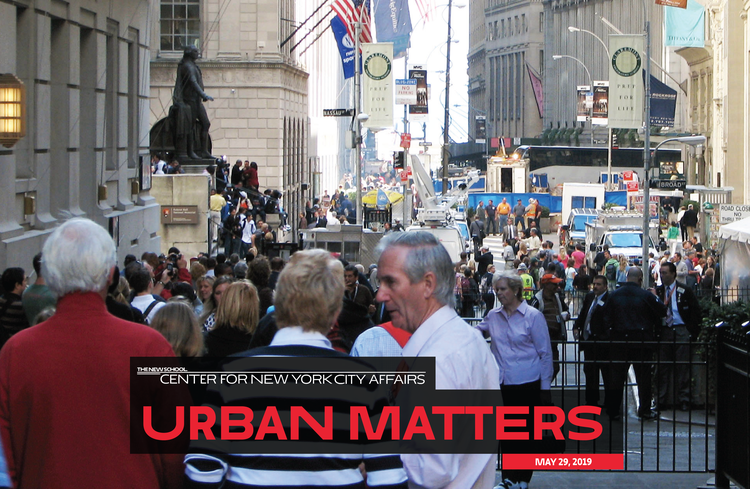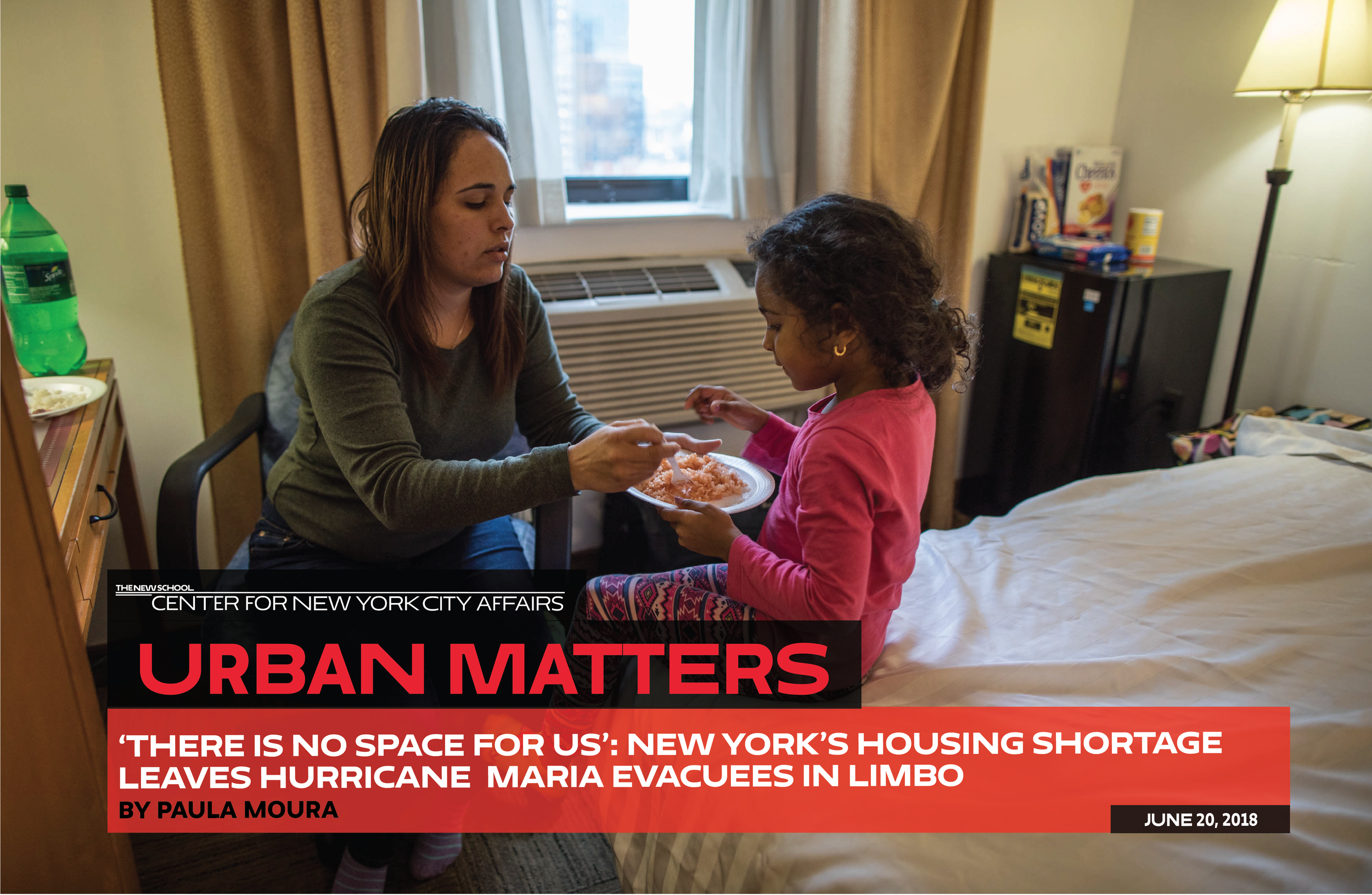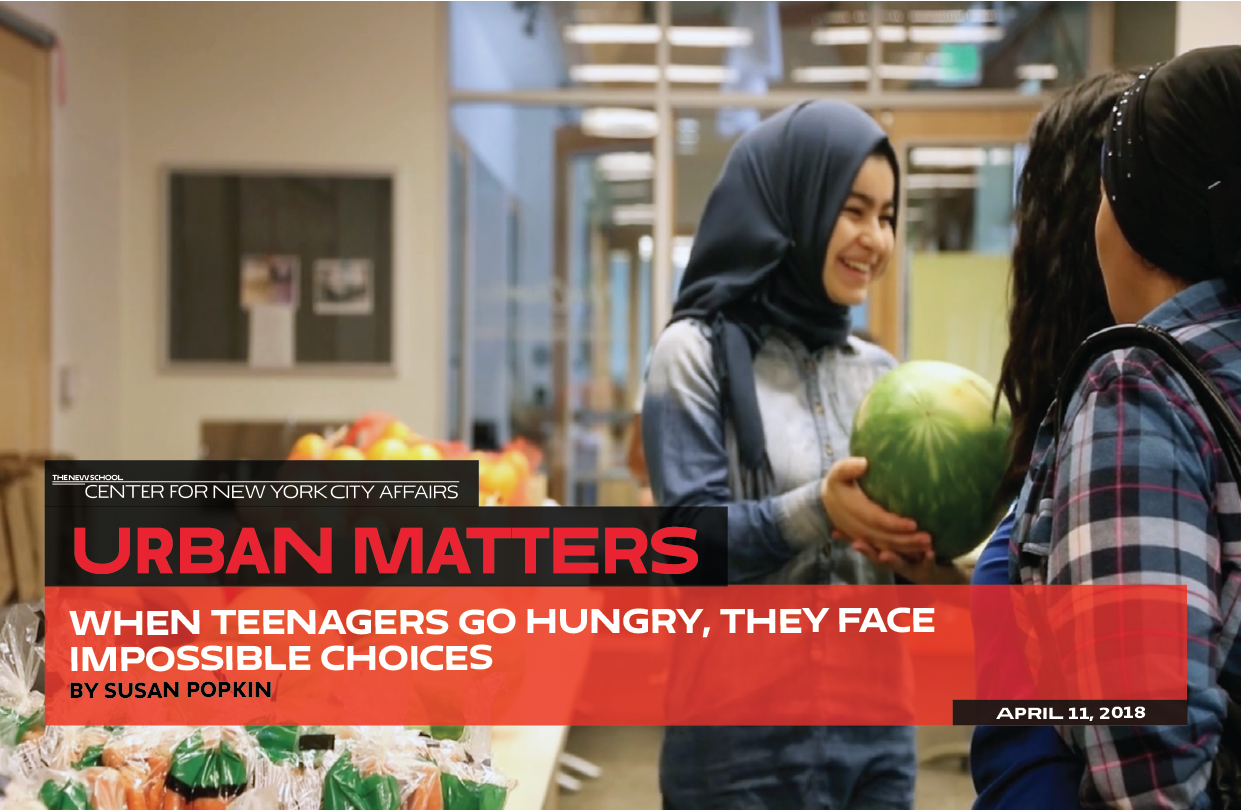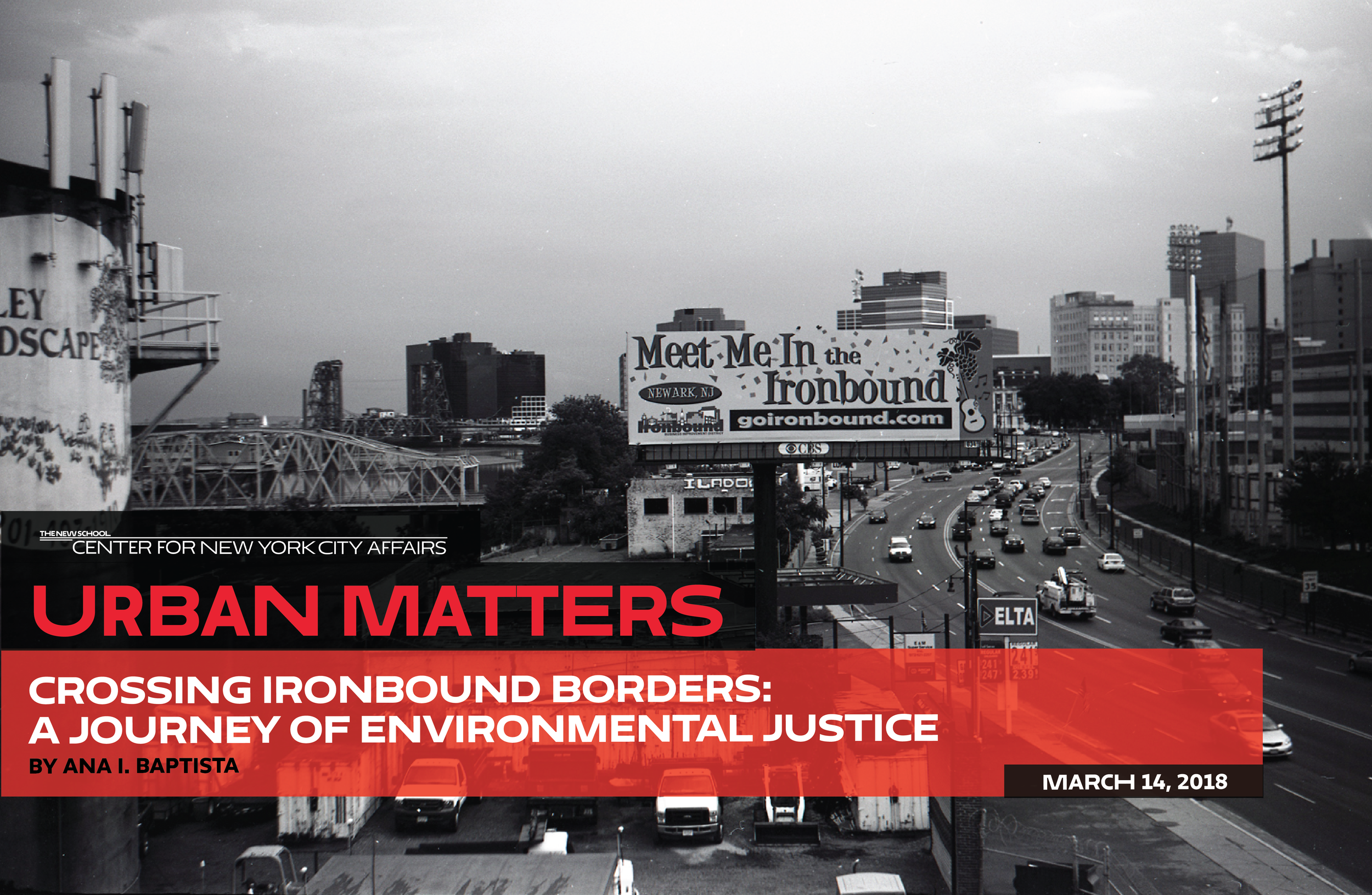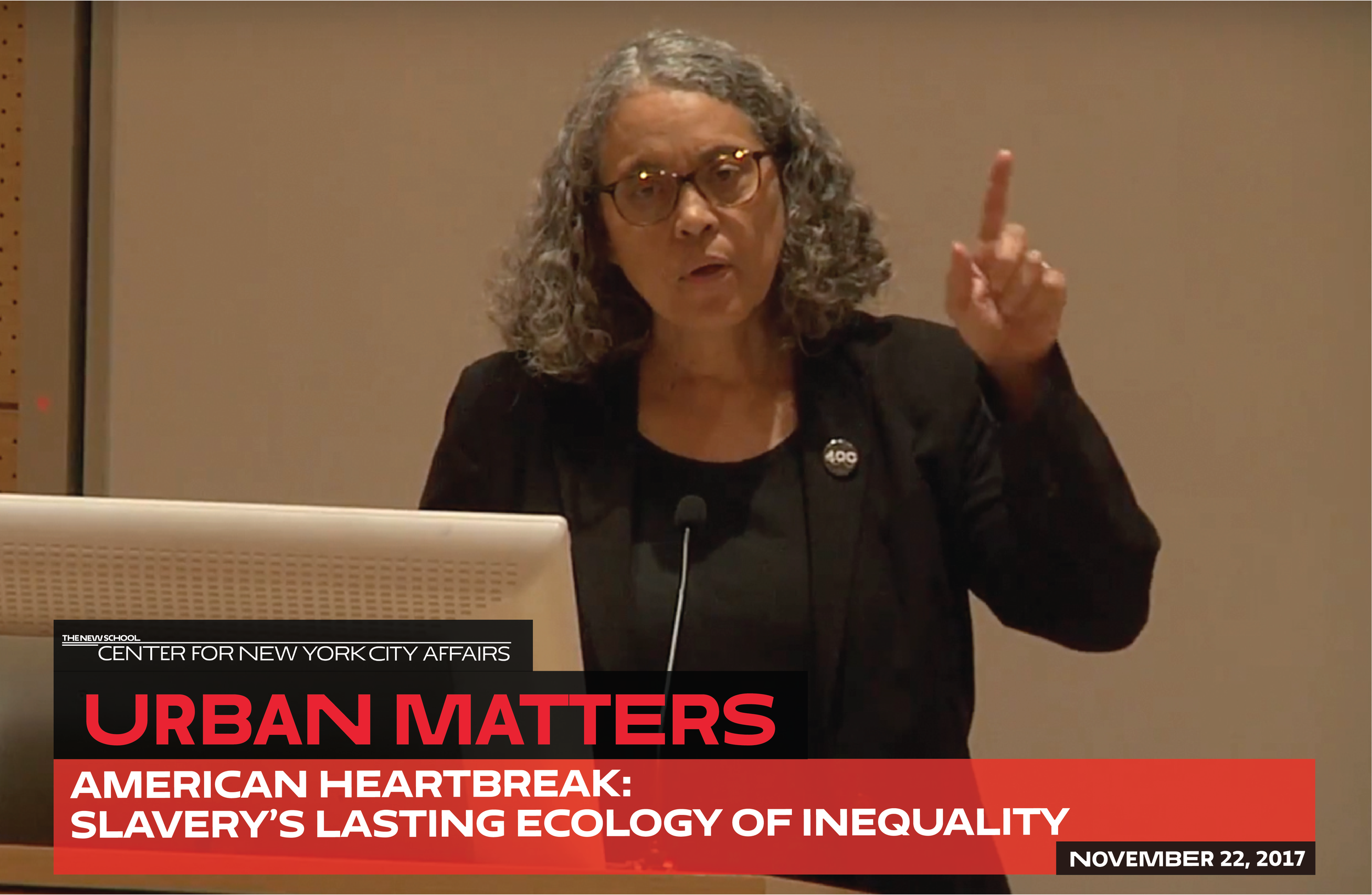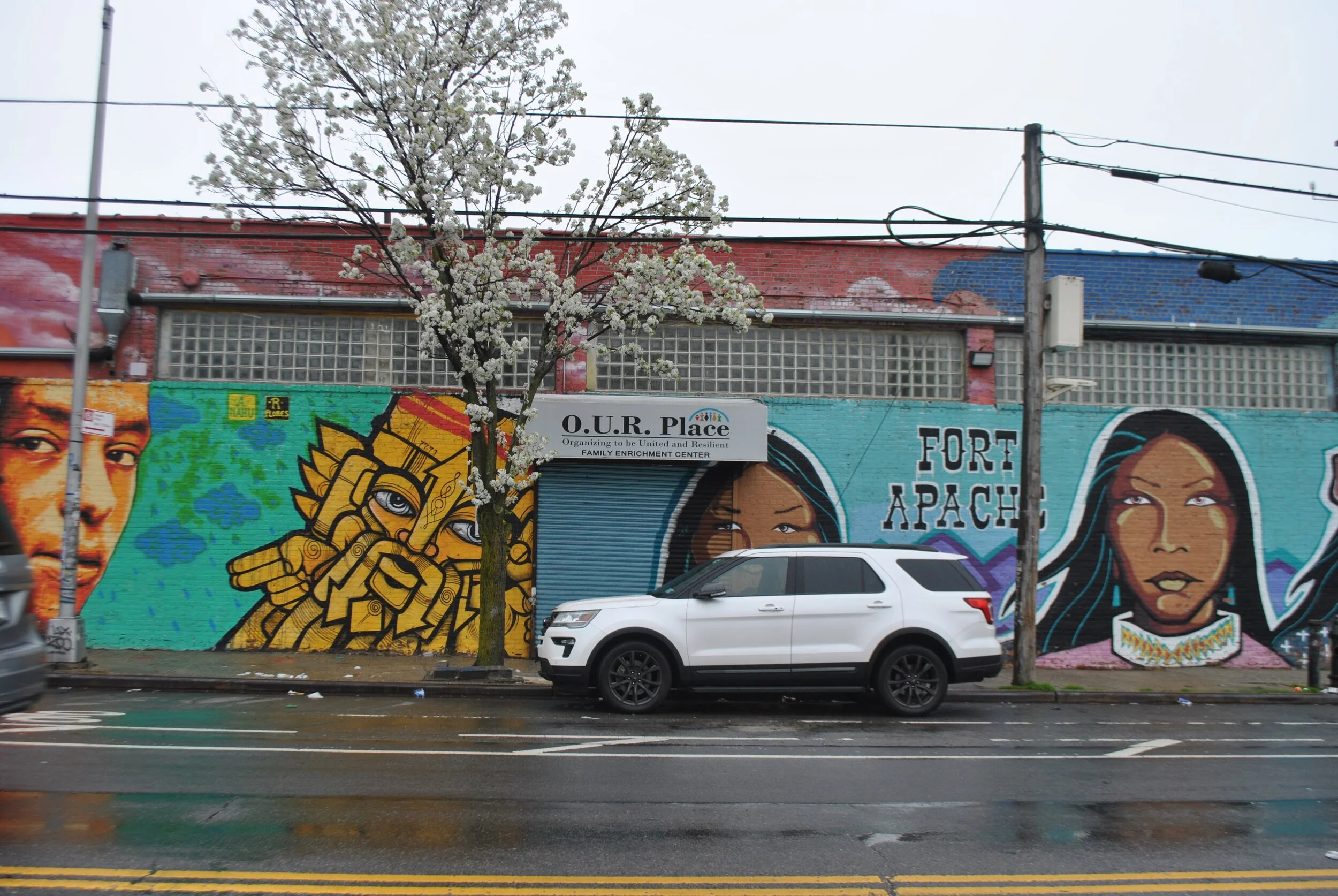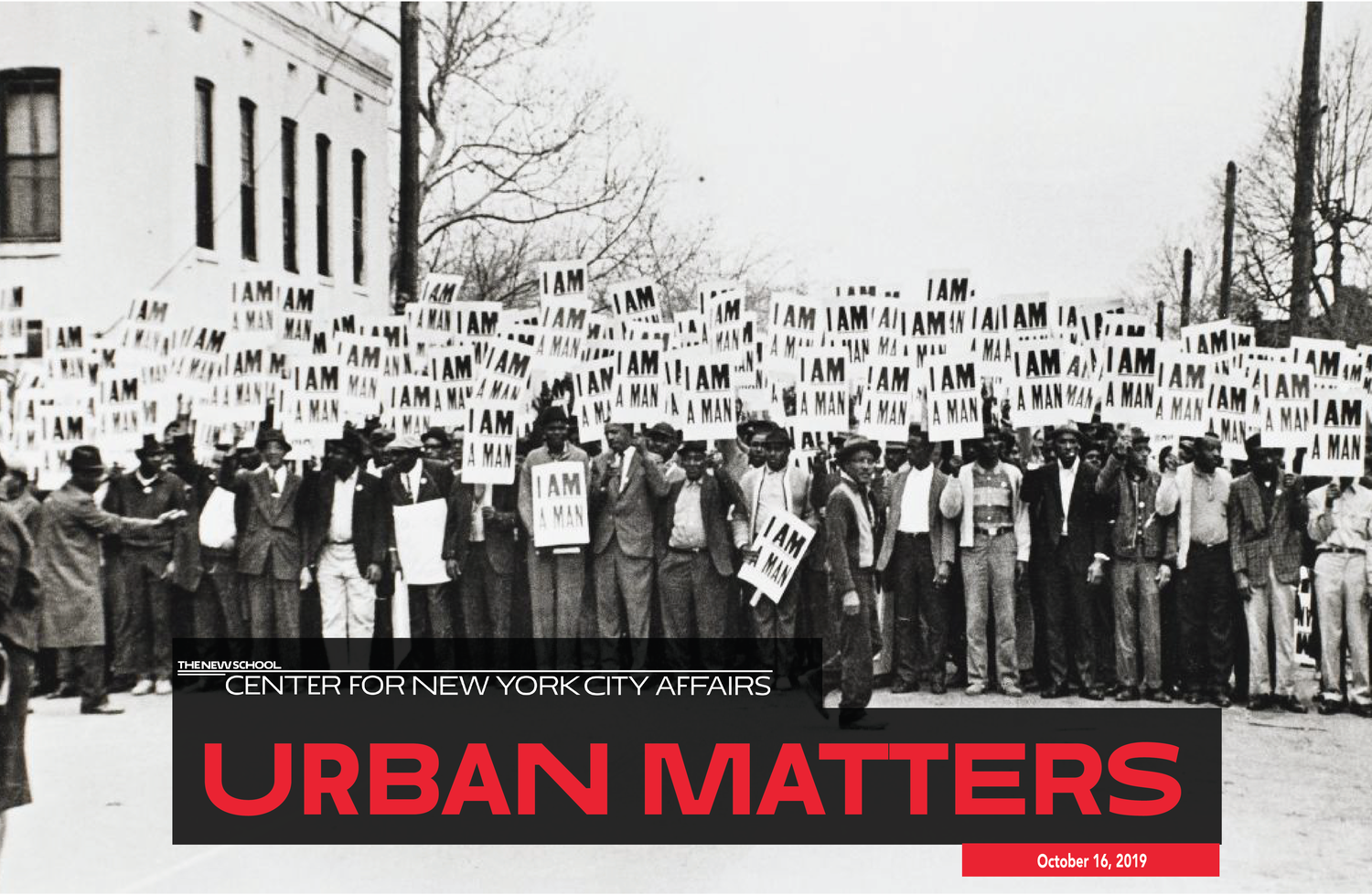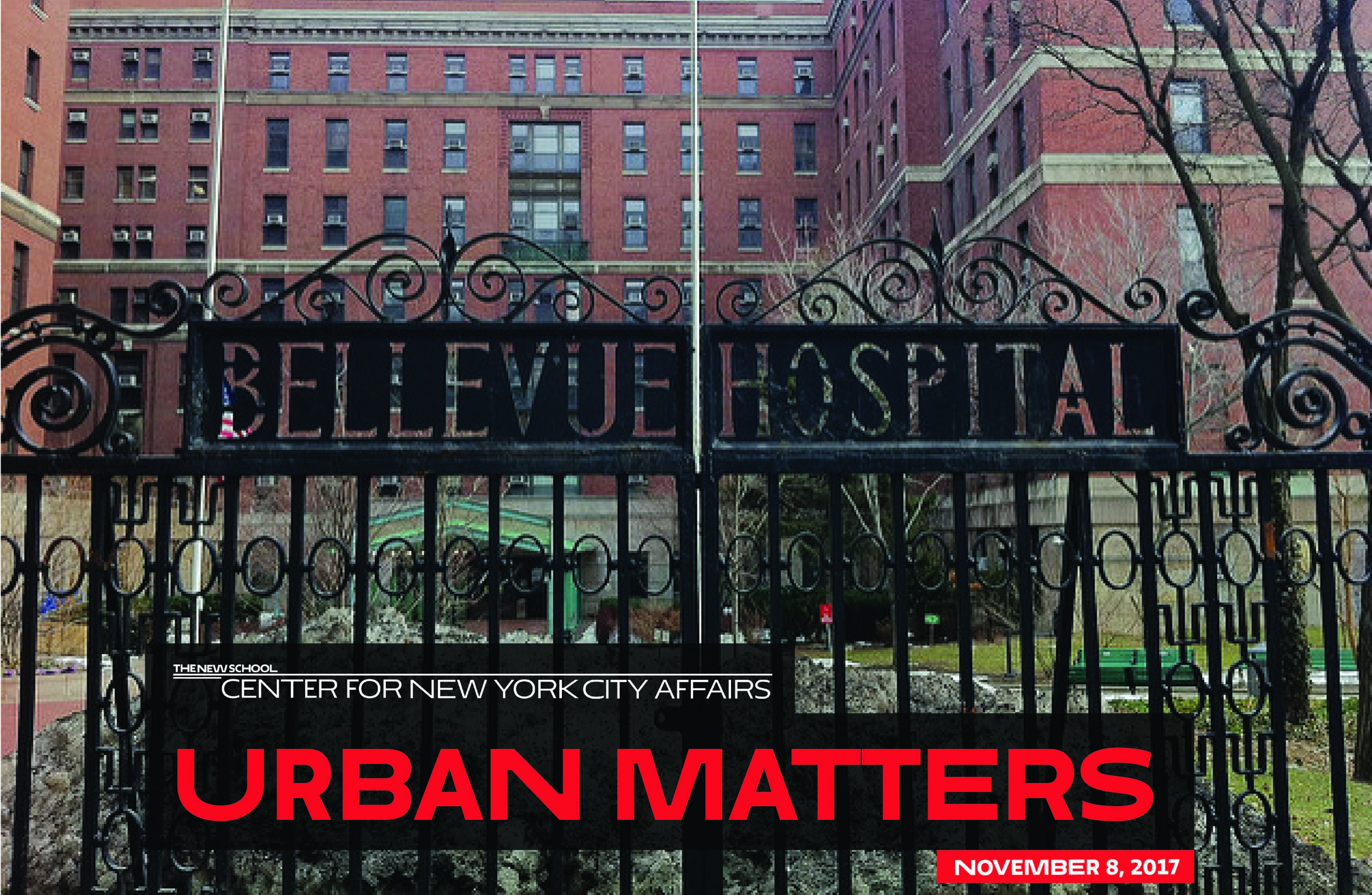Approximately one in five New Yorkers lives in poverty and nearly half the city’s households are considered near poor. Employment data and the city’s food banks tell us that the number of working poor continues to rise. We focus on policies to help families maximize income and access public benefits and services, including raising minimum wage and job quality issues, expanding tax credits, and access to affordable child care and other work supports. We are also examining the racial disparity in wealth and strategies to temper hardship caused by fluctuations in earnings and expenses.
Why Older Workers’ Wages Are Flat - And What to Do About It
By the Schwartz Center for Economic Policy Analysis
Older workers have experienced almost no real wage growth since the peak of the last economic boom. One factor is the proliferation of alternative work arrangements (AWAs), including on-call work, employment in contract firms, temporary agency work, independent contracting, and gig work.
Local Governments Can Afford To Pay a $15 Minimum Wage
By James A. Parrott
A new report, “The Impact of Increased Minimum Wages on Local Government,” released by The Century Foundation, examines the likely effects on local government budgets of a $15 minimum hourly wage. It finds that the cost is manageable. And as with higher minimum wages in the private sector, it will also foster greater workforce retention, improve the quality of service delivery, and significantly benefit the incomes and well-being of millions of families and their communities.
Of Poverty, Prison, and the Legacy of Slavery
By Jennifer Jones Austin
On a wall in my office at the Federation of Protestant Welfare Agencies (FPWA) hangs a photograph of protestors marching with placards bearing the now-famous declaration, “I Am a Man.” The iconic image comes from the Memphis sanitation workers’ strike in 1968, where the road to civil rights joined the path to economic equity. It was an intersection that our country had been careening towards for nearly 350 years. In many ways, neither of those destinations – equality or equity – has yet been reached. The harsh effects of the criminal justice system are a major reason why.
It’s Personal: Changing How White People Think About Racism
By Marcia Ely
Welcoming audiences to our evening programs is one of my tasks at the Brooklyn Historical Society (BHS). In my words of greeting, I often try to dispel the associations many have of historical societies as dusty places of White perspectives, telling one-sided histories. “Brooklyn Historical Society is not like that,” I say, with urgency. I really want people to get that. I know that distrusting institutions of historical authority is entirely reasonable. Especially in matters of race.
Jamestown+ 400 Years: What Stories of Remembrance and Resistance Mean to Us All
By Mindy Thompson Fullilove
This year, 2019, marks the 400th anniversary of the first landing of Africans at colonial Jamestown, to be sold into bondage. Such an historic moment raises challenges of open and honest observance of the full ramifications of that pivotal event – an observance that embraces remembrance and reparation, resistance and reform, contrition and correction.
Even As a $15 Wage Floor Kicks In, Big Apple Eateries Flourish
By James Parrott
In July, the U.S. House of Representatives passed the first increase in the federal minimum wage in 10 years. While that bill's fate in the Senate is doubtful, the House approval has given renewed attention to the question: What has been the economic effects in the cities and states where higher minimum wages are already being phased in? New York is one of those cities, with a $15-an-hour minimum wage now in effect for employers with more than 10 employees.
Fair Workweeks Remain Elusive Despite New York’s Reform Laws
By Harold Stolper and Nancy Rankin
Nearly two years ago, New York City’s Fair Workweek laws went into effect. The goal: Giving workers in large retail stores and fast food chain restaurants the right to predictable week-to-week work schedules. The laws set limits on a range of problematic employer practices that are all too common in these industries. Those practices include last-minute shift changes and “clopenings” that oblige workers to report for both the last, late shift of one workday and the first, early shift the following morning.
Surging Job Expansion Sets New Big Apple Records
By Thomas P. DiNapoli
New York City is experiencing its largest and longest job expansion since the end of World War II. Not only is the city flourishing, it remains a beacon for immigrants from around the world seeking new beginnings and a better life.
A report I released in April in my capacity as New York State Comptroller showed that the city added 820,400 jobs between 2009 and 2018, more than every state in the nation outside of California, Texas and Florida, and, of course, New York. The current job expansion is also the fastest, with an average of 91,200 jobs added each of those years. The vast majority were private sector jobs.
Forty Percent of NYC’s Working Families Don’t Make Enough to Afford Basics, a New Study Shows
By Sheena Wright and Merble Reagon
With the cost of living rising at nearly three times the rate of wages, 2.5 million working-age New Yorkers are struggling to provide food, housing, and other basic necessities for their families. United Way of New York City, The Women’s Center for Education and Career Advancement, City Harvest, and The New York Community Trust are proud to release “Overlooked & Undercounted 2019: The Self-Sufficiency Standard for New York City,” a study that determines the amount of income necessary to meet the basic needs of working families without public or private assistance.
The New York City App-Based Driver Pay Standard: Revised Estimates For The New Pay Requirement
Prepared By: James A. Parrott, Michael Reich, Jason Rochford, and Xingxing Yang
This brief provides an update to the report that Parrott and Reich issued in July 2018, "An Earnings Standard for New York City’s App-based Drivers: Economic Analysis and Policy Assessment,” and informs the final pay standard as incorporated in the Driver Income and Transparency Rules, adopted by the New York City Taxi and Limousine Commission (TLC) on December 4, 2018. The new pay standard takes effect February 1, 2019.
Public Housing And Asthma: Another Winter Of Discontent, Or Relief At Last?
By Kristen Lewis, Sarah Burd-Sharps, and Bruce Cory
The New York City Department of Health tracks and analyzes avoidable asthma hospitalization rates for adults—i.e., those that could have been prevented by quality outpatient care. A map of preventable asthma hospitalizations makes evident a connection between them and the amount of public housing in a neighborhood. Residents in neighborhoods with high rates of avoidable asthma hospitalizations and high concentrations of public housing— mainly in the South Bronx and central Brooklyn—are also more likely to report fair-to-poor housing conditions.
‘There Is No Space for Us’: New York’s Housing Shortage Leaves Hurricane Evacuees in Limbo
By Paula Moura
The terrifying message came via a robo-call on April 20.
“Pack your things. Your stay is not the Federal Emergency Management Agency’s (FEMA’s) responsibility anymore,” Andrea Tejeda, 26, recalls hearing on her cellphone. She was one of a dozen Puerto Rican families dislocated by last September’s devastating Hurricane Maria staying in a hotel on West 38th Street in Manhattan.
When Teenagers Go Hungry, They Face Impossible Choices
By Susan Popkin
Teenagers are hungry – all the time. That’s universally true, even in the most secure, economically well-off families.
NEWS BRIEF | URBAN MATTERS
Crossing Ironbound Borders: A Journey of Environmental Justice
By Ana I. Baptista
When I was a child, the city of Newark, New Jersey was often the punchline of bad jokes about urban blight and decay. But to me it was home. And it shaped my understanding of what I would dedicate my life to pursuing: Environmental justice.
URBAN MATTERS
American Heartbreak: Slavery’s Lasting Ecology of Inequality
In 1619, colonists in Jamestown, Virginia bought the first African slaves to be brought to what eventually became the United States. To mark this impending major anniversary of an event lamented by the poet Langston Hughes as “the American Heartbreak,” teachers and students at The New School have launched a project called “400 Years of Inequality.” It’s a university-wide conversation, including a recent week of “curriculum disruptions” in classes ranging from music to mathematics, designed to explore slavery’s enduring impact on American life, history, and the social structure of inequality.
Urban Matters
How to Stop the Bleeding at New York’s Public Hospitals
By Barbara Caress and James Parrott
Serving more than one million New Yorkers a year, the hospitals and clinics of the New York City Health + Hospitals (NYCH+H) system play a key role in combatting illness and injury across the city. But fiscally, they’re in dire health themselves; in fact, they’re hemorrhaging money. The system’s operating deficit is on course to reach $1.6 billion by 2019 and rise to $1.8 billion by 2020 – even though City Hall’s support for NYCH+H, which stood at $1.3 billion in 2013, is set to climb to $1.9 billion in 2020. And with the Trump Administration intent on undermining the Affordable Care Act and drastically cutting Medicaid, there’s little reason to expect a transfusion of Federal dollars.
New Release
Monitoring the Minimum Wage: Brief 3 on Lessons From Other Cities
By James Parrott
CNYCA partners with the Workforce Field Building Hub, an initiative of the NYC-based Workforce Professionals Training Institute (WPTI) on the Monitoring the Minimum Wage issue brief series. The briefs are intended to track the implementation of the $15 minimum wage in New York City by engaging businesses, workers and workforce practitioners, and by assessing the impacts in other jurisdictions around the country.
Monitoring the Minimum Wage: Brief 3 on lessons from other cities is available here.
Previous issues in the series are available here.
Urban Matters | Inequality And Poverty
Congestion Pricing and the Working Poor: Few Would Pay, Many Could Benefit
By Nancy Rankin and Irene Lew
Next month, an advisory panel appointed by Governor Andrew Cuomo is expected to deliver its recommendations for coming up with the hundreds of millions of dollars that experts agree is needed to make badly needed fixes to New York City’s ailing, 113-year old subway system. That will set the stage for what’s likely to be a major element in the budget the Governor sends to the State Legislature in January.
News Brief | Inequality and Poverty
Gotham Gains: Family Incomes Up, Poverty Down. Higher Minimum Wage Fuels Broad Economic Progress
By James A. Parrott, Ph.D.
New data for 2016, released by the U.S. Census Bureau last week, shows continued healthy gains in median family incomes and significant drops in poverty, especially childhood poverty, in New York City.
The Census Bureau found that real median family income in New York City rose 5.2 percent in 2016, and is up 9.5 percent since 2013. Real median family income in the city had fallen by 5.2 percent from 2008 to 2013, during and after the Great Recession. The 2016 median family income level of $65,440 was 3.8 percent greater than the 2008 level (expressed in 2016 dollars).
Urban Matters | Inequality and Poverty
More Jobs, Rising Wages, Broader Advances: Seven Indicators of New York’s Economic Health
By James A. Parrott, Ph.D.
New York City is in the eighth year of recovery from the 2008-09 Great Recession. This period has been one of historically strong job growth, declining unemployment, and rising minimum wages that are starting to translate into real wage and income gains.
Here are seven views of New York City’s economic health in mid-2017.
Urban Matters | Inequality & Poverty
Unpaid Bills, Unmet Needs: Why Workers Need Fair Work Schedules
By Harold Stolper
Hundreds of thousands of New Yorkers work in stores and restaurants across the five boroughs. Not only do these jobs typically pay low wages; many workers also don’t know from week to week—or even from day to day—when and for how many hours they’re expected to be on the job. The resulting unpredictability in incomes and schedules can make it difficult to arrange child care, create stable household budgets, and pay bills on time.
Urban Matters | Inequality & Poverty
It’s No Holiday for Hotel Workers When Bad Design Burdens Them
By David Brody
The hotel industry does everything in its power to make certain that guests do not have to think about the hard work involved in cleaning guest rooms. The connection between design and the concealment of housekeepers’ work is particularly significant, since it is design that manipulates our perceptions about what does or does not occur at a hotel.
Urban Matters | Inequality & Poverty
Next Stop, Fairness in Fares: Why New York Needs Low-Income Transit Discounts
By Harold Stolper
Most affluent New Yorkers don’t think twice before ponying up $2.75 to ride the subway or bus. But for the working poor, it’s another story.
Women's Pay Equity: Getting Even (2016)
It is well known that women in the U.S. are paid, on average, 77 cents for every dollar that a man earns. We discuss: what is the nature of the pay gap and why does it exist; who is affected the most; and what policy initiatives can be taken to close the gap?
Deborah J Glick, assemblymember, NY State Assembly; Brad Hoylman, senator, NY State Senate; Azadeh Khalili, founding executive director, Commission on Gender Equity, NYC Mayor's Office; Beverly Cooper Neufeld, founder, PowHer New York; Teresa Tritch, editorial board, The New York Times
Urban Matters | Inequality & Poverty
Designed to Work: A Neighborhood-Based Strategy to Connect People to Jobs
By Rosanne Haggerty and Katie Gordon
In New York City, unemployment has fallen well below the 10%-plus peak it reached after the global financial meltdown and recession of 2008. While that’s hopeful news, it obscures a glaring divide: This recovery hasn’t benefitted the city’s neighborhoods equally.
Urban Matters | Inequality & Poverty
No Food, No Phone, No Subway Fare:
Daily Hardships of the ‘Unheard Third’
By Apurva Mehrotra and Nancy Rankin
"In New York City, the idea that hard work and perseverance can lead to a better life is losing ground.” That bleak assessment begins "Getting Ahead: An Upward Mobility Agenda for New Yorkers in 2016," a report based on the most recent (July-August 2015) annual survey of the city’s “Unheard Third” by the Community Service Society of New York – what CSS calls “the only public opinion poll in the nation to regularly chronicle issues facing low-income individuals and families.”
Urban Matters | Inequality & Poverty
Human Services, Human Costs: Two Views of What the Fight for $15 Could Mean for Low-Wage Caregivers
By E.J. McMahon and James Parrott
While fast food workers have commanded most of the attention in the “Fight for $15” both nationally and in New York, proposals to raise the minimum wage affect other major segments of the workforce, too. By some estimates, more than 400,000 workers in the human services in New York State currently earn less than the $15 per hour that Governor Andrew Cuomo has proposed be the new State minimum wage, to be phased in by 2019 in New York City and mid-2021 in the rest of the state.
Urban Matters | Inequality & Poverty
Help Wanted: Nonprofits Hiring Young Adults with Criminal Histories in Supportive Work Environments
By Julie Peterson
Many social service programs aim to get young people ready for work. Not enough hire them. As important as education and training are, they often fall by the wayside for young people living in poverty, lost in the unending immediate need for funds to survive and support a family. Without a job to provide those funds, inevitably, many young people turn to a shadow economy – and that often leads to a criminal record. Once that spiral has begun, opportunities for legitimate employment become few and far between. Opportunities for meaningful employment are almost nil.
Urban Matters | Inequality & Poverty
A Conversation About America's Retirement Crisis with Dr. Teresa Ghilarducci
A professor of economic policy analysis at The New School, Dr. Teresa Ghilarducci is a nationally recognized expert on retirement policy. She recently talked with Urban Matters about the proposal by her and others to close retirement savings shortfalls by creating guaranteed retirement accounts.
Urban Matters | Inequality & Poverty
The Stark Black and White Of America's Wealth Divide (2015)
By Darrick Hamilton and William Darity, Jr.
Wealth – the value of what you and your family own minus what you owe – matters. A lot. Wealth is, in short, the paramount indicator of future economic success.
READ MORE
Event | Inequality & Poverty
Low-Wage NY: Pay Raises & Working New Yorkers (2015)
The rationale for the higher minimum wage is clear: Since the end of the Great Recession, the majority of job growth in New York, a notoriously high cost-of-living environment, has been in low-wage employment. While organized labor and its allies have pushed the "Fight for $15" in response, others have voiced concerns that such raises may result in job losses or stymie entrepreneurship. Is a dramatic raise in the minimum wage the best way to help low-income workers in New York?
Kathryn Wylde, president and CEO, Partnership for New York City; Hector Figueroa, president, 32BJ SEIU; Paul Sonn, program director, National Employment Law Project. Jennifer Jones Austin, chief executive officer, Federation of Protestant Welfare Agencies; Edmund J. McMahon, senior fellow at the Manhattan Institute; Darrick Hamilton, associate professor of economics and urban policy, and director of Milano Doctoral Program at The New School
Event | Inequality & Poverty
Changing Demographics and the Economic Imperative (2015)
A conversation with Manuel Pastor that explore questions such as: what are the national demographic shifts and their impact on our country and the economy? What is the “uncommon common ground”? How can policies be used to advance an inclusive agenda that works for all?
Event | Inequality & Poverty, Homelessness
Protecting the City's Children from Homelessness (2015)
How can we keep children in city-subsidized shelters safe? How can we use the time they spend in shelter to foster rather than derail their development? How can we support parents who are leaving shelters that may be the only homes their children have known?
Christy Parque, executive director, Homeless Services United, Inc. Janee Harvey, program director for preventative programs, CAMBA. Joyce McMillan, parent organizer, Child Welfare Organizing Project. Moderated by Clara Hemphill, interim director, Center for New York City Affairs at The New Schoo
Event | Inequality & Poverty, Racial Equity
Surveillance City: The War on Drugs in Urban Neighborhoods (2014)
The War on Drugs has created a powerful surveillance state in America's most disadvantaged neighborhoods. High-tech techniques criminalize entire blocks and transform informal community networks into liabilities for local residents as police use family relationships to demand information, pursue suspects and threaten incarceration. The presumption of criminality takes a relentless toll.
Alice Goffman, assistant professor of sociology, University of Wisconsin-Madison; author, On the Run: Fugitive Life in an American City. Jeff Smith, assistant professor of politics and advocacy, Milano School of International Affairs, Management, and Urban Policy, The New School. Jamelle Bouie, politics, policy, and race reporter, Slate.
Event | Inequality & Poverty
Banking Under the Mattress: Financial Literacy and Unbanked New Yorkers (2010)
A FDIC study finds that seven of every 20 New York households is underbanked. New York and other cities and states are experimenting with solutions, including low- or no-fee community banking services and financial literacy campaigns. What works? And what should government, nonprofits, and the banking sector do now?
Jonathan Mintz, commissioner of the New York City Department of Consumer Affairs; Cathie Mahon, executive director of the NYC Office of Financial Empowerment; Deyanira Del Rio, associate director of the Neighborhood Economic Development Advocacy Project (NEDAP); Edward Kramer, executive vice president of Wolters Kluwer Financial Services; Leslie Parrish, senior researcher at the Center for Responsible Lending. Dean Starkman, managing editor of the Columbia Journalism Reviews The Audit
Event | Inequality & Poverty, Racial Equity
Race and the Subprime Crisis: The Future of Minority Neighborhoods (2009)
Some critics blame the Community Reinvestment Act for the mortgage meltdown that prompted the current deep recession. Others point to the abuses of subprime lending and Wall Street manipulation. Yet questions about the impact of the economic collapse on African American communities—and about the future of neighborhood stability, consumer access to credit, and the role of race in public policy—remain unanswered. As the federal government acts to reverse the economy's decline, what have we learned, and what does the future hold?
Hon. Maxine Waters, U.S. Representative (D-Calif.); James Carr, COO, National Community Reinvestment Coalition; Sarah Ludwig, Executive Director, NEDAP; Louis Prezeau, President & CEO, City National Bank; Darrick Hamilton, Assistant Professor, Milano The New School for Management and Urban Policy.
Event | Inequality & Poverty
Markets, State and Democracy: Lessons from the Economic Crisis (2009)
The libertarian model asserts that heavy state intervention in the economy is a threat to human liberty. But the recent history of market-based democracies has shown almost the reverse. The supposedly small-state model of the United States has instead opened the door to massive inequalities of income, wealth, and power. The state has not taken over business; alas, business has taken over the state. Considering the recent experiences of the United States, Scandinavia, and other market-based economies, how should we re-conceptualize the balance of state, market, and democracy?
Professor Jeffrey Sachs, Director of the Earth Institute at Columbia University


